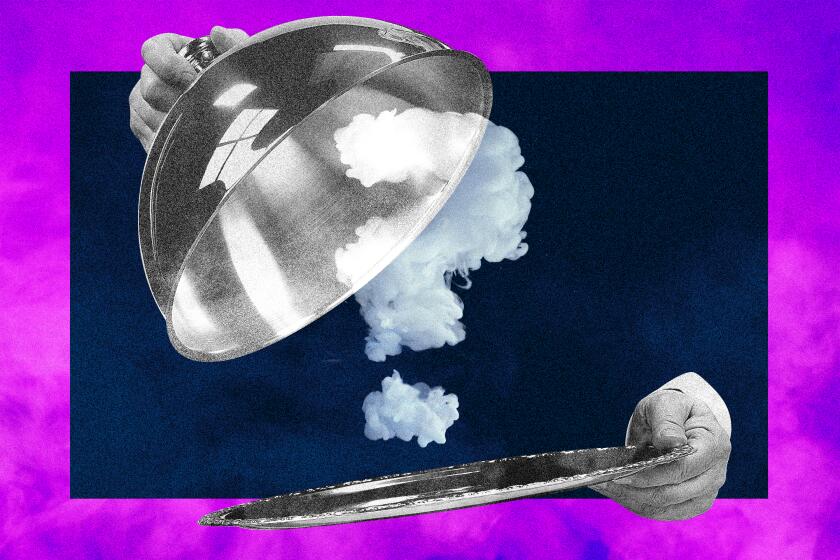Medical Pot Outlets on Hold
The Riverside County Board of Supervisors unanimously approved an emergency moratorium on medical marijuana dispensaries Tuesday, angering local advocates and medicinal users of the drug.
The interim zoning ordinance bans medical pot establishments for 45 days while the board determines how such establishments would be regulated.
Supervisor John Tavaglione introduced the measure after some residents in his northwest district tried to open medical marijuana establishments and he learned that no local zoning laws existed for them, said Anne Stephens, chief deputy in Tavaglione’s office.
Advocates of medical marijuana criticized the ordinance as irresponsible. Lanny Swerdlow, director of the Marijuana Anti-Prohibition Project in Palm Springs, called it “overly broad.”
Medical marijuana patients “are not potheads or stoners. They’re just regular people, like you and me,” Dr. Joanne Benzor of Lake Elsinore told the board. She says she prescribes the drug to more than 100 of her patients.
The board’s vote comes as state and federal laws on medical marijuana are conflicting on whether it is legal for seriously ill people who have obtained a doctor’s recommendation to use the drug. People with AIDS, chronic pain and mood disorders are among those who use it.
The U.S. Supreme Court ruled in June that federal agents may seize medicinal marijuana in spite of California’s Proposition 215, which voters approved in 1996 to legalize the use of it.
But federal drug enforcement agents have indicated that their focus is on large-scale traffickers, not patients seeking relief.
Using the plant for physician-recommended therapeutic purposes remains legal in California, one of 10 states -- most in the West -- with such laws. The high court ruling did not overturn California’s medical marijuana laws, but it did leave medical pot users vulnerable to federal prosecution.
Proposition 215 offers no guidelines that regulate how patients should obtain the drug, or whether dispensaries or co-ops are legal, said Teresa Schilling, spokeswoman for state Atty. Gen. Bill Lockyer.
“A lot of the counties may feel they’re at risk,” Schilling said, citing recent cases of medical pot outlets operating as fronts for criminal activity. “It’s very difficult for them to come in and figure out a way to regulate it and keep it safe.”
Under a 2003 bill passed by state lawmakers, medicinal marijuana users can receive special state identity cards that let local law enforcement officials know they are in legitimate possession of the drug.
Riverside County’s ID card program, in which applications are processed by the county but issued by the state, should be up and running by Dec. 1, said Michael Osur, the county’s deputy director for public health.
More than half a dozen Riverside County residents made impassioned remarks to the board Tuesday describing how medical marijuana alleviates their symptoms -- of multiple sclerosis or paranoid schizophrenia, for example.
“It shouldn’t be against the law for parents to grow medical marijuana for their son,” said Kyle Bashore, 21, of Cathedral City, who uses the drug for the pain and nausea brought on by his Crohn’s disease.
Tavaglione emphasized in the meeting that the ordinance was temporary.
The interim ordinance was designed “to give [the board] time to establish requirements ... for placement of dispensaries,” Tavaglione said, adding that he thought it was necessary to keep such establishments away from churches and schools.
More to Read
Start your day right
Sign up for Essential California for news, features and recommendations from the L.A. Times and beyond in your inbox six days a week.
You may occasionally receive promotional content from the Los Angeles Times.






